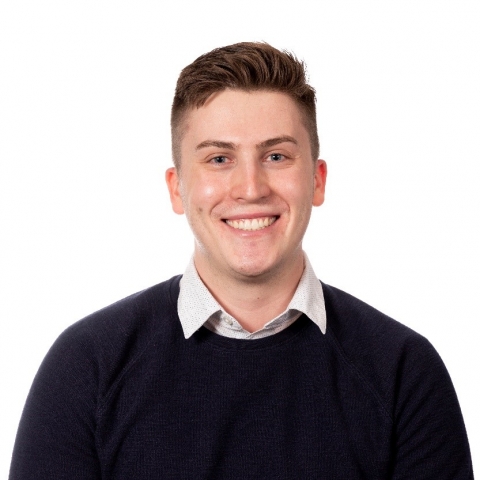ARCS Scholar Tyler Sypherd from Arizona State University was found being “properly improper” as he presented his research at the International Conference on Machine Learning (ICML) - the leading international academic conference in machine learning, hosted in Baltimore this past July.
Sypherd’s paper titled “Being Properly Improper” explores how to make machine learning models more robust under data corruption by using special loss functions to shape the learning process. The paper was accepted for presentation in a short talk and a poster at the ICML which only accepts 20 percent of submitted papers.
“Being Properly Improper” was co-authored with ASU Professor Lalitha Sankar (and Sypherd’s PhD advisor) and Google researcher Richard Nock.
“Often in practice when you are training a machine learning algorithm, the data is noisy, corrupted [and] imbalanced,” Sypherd explained. “We are arguing that one should consider a different type of loss function - a different type of machine teacher in scenarios where you know there is corrupted data.”
Sypherd’s paper was included in one of ICML’s spotlight sessions, the conference’s Healthcare AI and COVID-19 workshop, and Interpretable Machine Learning and Healthcare workshop.
Tyler Sypherd alongside his ICML poster
(Courtesy: Tyler Sypherd)
Sypherd is in his sixth year and final semester of his PhD program at ASU as an electrical engineering student focusing on machine learning. His advisor and co-author Sankar works on data privacy and leakage, and information theory.
Sypherd was an ARCS Scholar recipient in 2021 and credits the award for allowing him to focus on his research and paper without worrying about financial or time restraints.
“It was a huge confidence boost for me because it felt like what I was doing was actually meaningful and valuable, and people could tell the research was worthwhile,” he said.
This fall, Sypherd will defend his thesis, "A Tunable Loss Function for Robust Classification" and looks forward to completing his PhD and stepping into an industry role. Sypherd said he is eager for his work to have a practical output outside of the academic setting. However, he hopes to eventually become involved in academia in a teaching or mentorship role.
“I’ve had a lot of great mentors throughout my education and people - like ARCS Foundation for instance - have supported my education and I feel like teaching is a way for me to give back,” Sypherd said.

